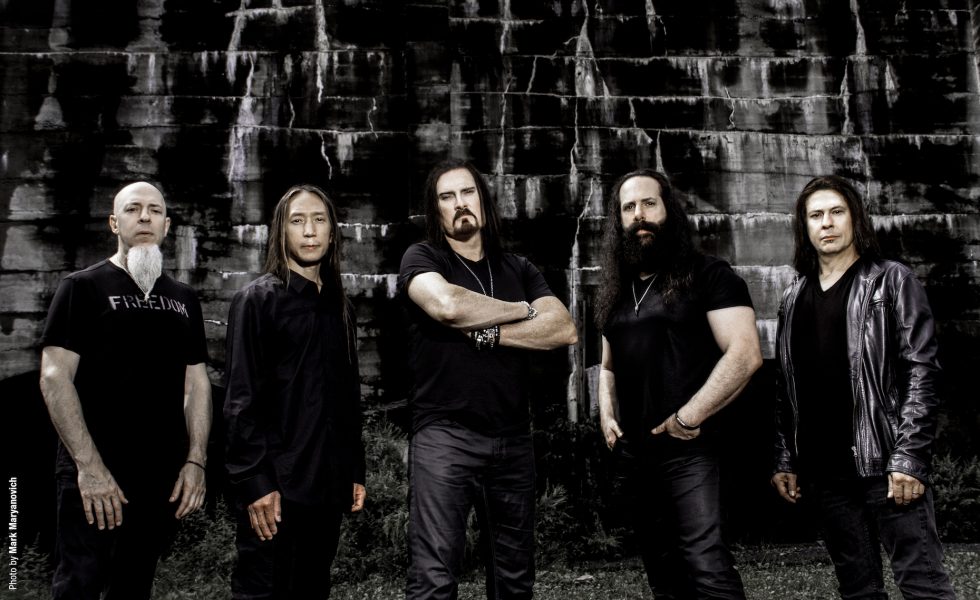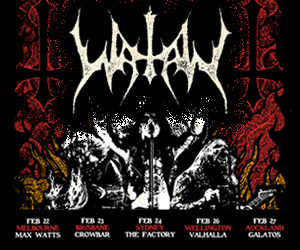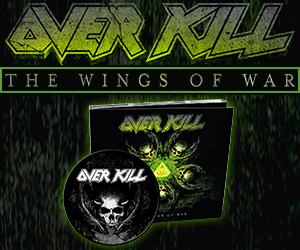Brisbane’s pop-punk upstarts Two Times Shy are soaring lofty heights as they let loose their …
Speaking from his hometown Toronto, Dream Theater’s James LaBrie sounds relaxed. His band’s new album Distance Over Time, is on that same vibe.
MORE: EXCLUSIVE: OCEAN GROVE: We’re Going To Be There For Anyone Who’s There For Us // BRING ME THE HORIZON: From Sheffield with Amo REVIEWS: Dream Theater: Distance Over Time
It’s hard to hang loose when you’re the torchbearer for an entire genre of popular music. There would be no progressive metal as we know it without Dream Theater. Often imitated, never replicated, Dream Theater is the ultimate fusion of virtuoso musicianship, genre-pushing creativity, and awe-inspiring live performances. Like Rush or Pink Floyd before them, there’s nothing else like them. LaBrie and team produced the album and set themselves up in a house to record; a far cry from the usual business-like approach of previous albums. LaBrie tells Hysteria it made for a more open, cohesive, and overall better product.
John in interviews said recording Distance Over Time was like going back to summer camp. Was that what it was like?
Yeah, I guess you could say that. It was the first time that we had been living in a house together writing and recording. I mean, we lived together as a band back when we were recording Images and Words, but the difference being is that the music was all written, we were just going to the studio to actually record the music. This being different in the sense that we were living together throughout the writing sessions. And then once everything was written, then whoever was recording their tracks would be at the studio. So whether it was drums, bass, guitar, keys. And I always do my vocals kind of remotely done up here in Canada ’cause I just like to work one on one with the engineer, and then do my thing. I can be very focused and absolutely no distraction.
But I think the advantage to living together throughout the writing process is that… obviously you’re in a room when you’re writing, but it’s everything else that’s happening outside of the studio. When you’re living together, whether you’re cooking a meal together or whether you’re having a glass of wine together, or whatever your preferred drink is, conversation tends to always come back to the music. And I think it just keeps, it keeps feeding the wheel. And I think because of that, it really kind of just kept building, the momentum kept building throughout the process to the point that it was a very prolific type experience.
But it definitely had its advantages. And it was kind of cool for us to be around one another. I wouldn’t suggest a band doing so if there was a lot of strain relationship-wise. But we’ve already gone through all our growing pains and so on and so forth, so doing something like this, it seemed very natural for us, and very, very conducive to our goal.
There’s a lot of stuff on this record we wouldn’t associate with Dream Theater, like the bluesy stuff.
You mean the Viper King?
Yes, especially the Viper King.
That’s always been a side to Dream Theater though, like growing up and listening to bands like Van Halen or Deep Purple, who seem to have that rock classic blues-y influence. Even Zeppelin had a lot of blues influence in it, even though they were rock giants, and unbelievable. But I think that’s always been a part of it. We haven’t necessarily shown it to the degree that we did with Viper King. But it was always a big part of who and what we are.
That was just something that came from sound check where we were just screwing around, fiddling around with the blues and having a good time and jamming it out. And then at one point the conversation kinda turned to that, it was just kinda like, “Hey, you know, why don’t we see where we can take that. Why don’t we see if we can bring that to a point of fruition, and make some sense out of it, something that we’d feel strong enough about that it can be included on the disc.” And it just made perfect sense for something like that to be a bonus track so that people could see another, you know, our fans could see another side to us, and something else that is to a certain degree integral to I think any band or any kind of band that is influenced rock-wise or blues-wise, which is the foundation or the fundamental element to anything that’s rock and roll is blues.
Why do you prefer working on your own? Where do your contributions fit in when recording?
it’s just a personal preference. In the past I’ve sung some albums with other band members in the control room, and then that worked, but it got to a point that I just started to say, “You know what guys, the way that I go about recording …” Well, the way I recorded Images and Words, or Awake, or A Change of Seasons, I was basically left to my own devices, and myself and the engineer. And not to say that the guys wouldn’t be … at very, very, very minimal and very seldom would they pop in if I was singing a little bit here or there, but not something where it was consistent or they were present throughout, because it just didn’t seem necessary.
Then we started to flip things throughout a few albums where the other guys would’ve been in the control room, like I said. And then the whole time throughout I’ve been doing solo albums. And basically it just came back to me saying, “You know, I really feel that I work better when I’m left alone and I don’t have anybody around.” Even looking at someone else in the control room can alter your whole focus or your whole ideal as far as what it is that you’re approaching, the emotional spectrum that you’re trying to sink into. So I thought, like with me, it’s just myself and the engineer.
Generally speaking the vocals are the last thing that goes down. But the way that we usually write is, it’s all about the instruments first, which create the music correct. And that is the template, and then from there it’s the melodies, and then from there it’s the lyrics. So obviously, because of the process that it’s been pretty much since the beginning.
When you’re living together, whether you’re cooking a meal together or whether you’re having a glass of wine together, or whatever your preferred drink is, conversation tends to always come back to the music.
[JAMES]
Is there a big difference between singing, recording, and performing?
Well, you know what, there’s two different environments there. One, you’re in a very controlled and isolated environment, right? And it’s just you and the microphone and the song, right? And so, definitely it just, I think it’s necessary because it allows you to be completely uninhibited and expressive to the absolute maximum.
When you’re in front of the fans, I mean, that’s another ball game, because you’re not only performing the songs, but you’re also wanting to have that connection, that interaction with your fans. So there’s two things going on. There’s the visual aspects, there’s the energy that we all feel and that we all feed off of. And then there’s obviously, which is still always priority, there’s the performance. The music and the feel and the vibe has to be correct.
There’s more moving parts to a live performance, too.
Well, not much more, but there’s just very, very specific and defined differences between the two. I always say that to anyone who asks me, “What’s your preference? Would you rather be in the studio or would you rather be live?” I go, “No, there’s no preference because I love being in the studio, that’s an amazing and very intimate experience with the music. And then I love being live because it’s me, the rest of the guys in the band, that in itself is a great high, and then to be singing and performing all these songs in front of the people is another thrilling ride itself.” So there’s not one that eclipses the other.
Will you be coming back to Australia on this album cycle?
Definitely that’s the idea. I mean, we’re starting out the tour March 20th in San Diego in the States. So we’re doing North America, I think we finish May 5th in Mexico City. And then we do a huge festival tour from June into late, late July. And then I assume in the fall, I know it’s being talked about right now, that we’re doing the Pacific Rim. So it only makes sense for us in the fall when we’re over doing the Pacific Rim that we would be also including Australia, and even hopefully New Zealand.
I mean, Australia’s a very important place, you know, not unlike anything else around the world. We have incredible fans there, and each time we’ve gone there it’s been a great experience. So it’s something that we wanna continue to cultivate and it’s something that we wanna maintain.
I know that we are right now in talks with our agents about doing that and getting into Australia and making … And not only doing one or two shows. That’s the other thing that’s been talked about is that it has to be a little more extensive. Let’s get into Sydney and Melbourne and Adelaide and Perth and Brisbane and so on and so forth. So it’s on our radar for sure.






